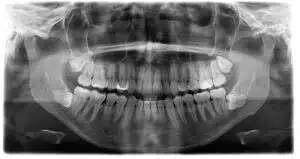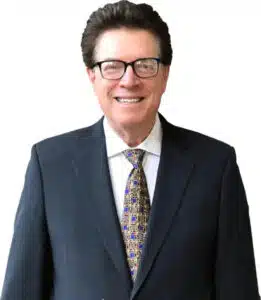Wisdom teeth are the mysterious third molars at the back of your mouth. We’ve often associated them with the coming-of-age years, a rite of passage for young adults navigating their way into adulthood. However, what’s often overlooked is that wisdom teeth don’t adhere to an age limit. As we mature, these teeth can continue to present challenges and demand attention. So many are asking: is the experience of getting wisdom teeth extractions in adulthood any different?
The Basics of Wisdom Teeth
Wisdom teeth, also known as third molars, are the last set of molars located at the back of the mouth. These teeth typically emerge during adolescence, usually between the ages of 17 and 25. Wisdom teeth serve an evolutionary purpose dating back to our ancestors, who had a tougher diet that required additional chewing power.
However, modern diets and changes in the structure of our jaws have made wisdom teeth largely unnecessary for most people today.
Are Wisdom Teeth Still a Common Concern in Adults?
Contrary to common perception, wisdom teeth can remain a concern well into adulthood. While it’s true that they often cause issues during the late teens and early twenties, wisdom teeth-related problems can persist as individuals age.
Dental professionals frequently encounter older adults with wisdom tooth-related issues, debunking the misconception that these concerns are exclusive to young people. In fact, addressing wisdom teeth in older adults is a topic of increasing importance in the field of oral health.
Changes in Oral Health with Age
As people age, several significant changes occur in their oral health. Understanding these changes is crucial for maintaining good dental care as we grow older. Here’s an enumeration of some key transformations:
- Tooth Loss: One of the most noticeable changes in oral health is the potential for tooth loss. Over the years, teeth can become worn, damaged, or decayed, leading to extractions or the need for dental prosthetics such as dentures or dental implants.
- Gum Recession: Gum recession is another common issue that tends to develop with age. As gums recede, tooth roots may become exposed, increasing sensitivity to hot and cold temperatures and raising the risk of cavities on the root surfaces.
- Bone Density Reduction: Aging can result in a reduction in bone density in the jaw, which can affect the stability of teeth and contribute to tooth loss. This bone loss can also impact the feasibility of certain dental procedures, like dental implant placement.
- Changes in Saliva Production: Saliva production may decrease with age, which can have implications for oral health. Saliva plays a crucial role in maintaining a healthy mouth by helping to wash away food particles, neutralize acids, and prevent tooth decay.
- Increased Risk of Oral Health Conditions: Older adults may face an increased risk of oral health conditions such as periodontal disease (gum disease) and oral cancers. Regular dental check-ups become even more critical to monitoring and managing these risks effectively.
- Dental Care Challenges: Mobility and dexterity issues that can arise with aging may make it more challenging for older adults to practice proper dental care, including brushing and flossing. Caregivers may need assistance with oral hygiene routines.
Indications for Wisdom Teeth Extractions in Older Adults
There are several reasons why wisdom teeth might need to be removed in older individuals. Here’s an enumeration of the key indications:
- Impaction: Wisdom teeth often do not have enough space to fully erupt properly. They may become impacted, meaning they are unable to grow normally. Impacted wisdom teeth can cause pain, swelling, and infection.
- Infection: Impacted or partially erupted wisdom teeth can create pockets where bacteria can accumulate, leading to infection. This condition, known as pericoronitis, can be quite painful and requires prompt attention.
- Dental Crowding: In some cases, the emergence of wisdom teeth can exert pressure on neighboring teeth, causing them to become misaligned. This can result in dental crowding, bite problems, and difficulty cleaning between teeth.
- Cysts and Tumors: Although rare, wisdom teeth can sometimes develop cysts or tumors. These growths can damage surrounding teeth and bones and may necessitate surgical removal.
- Pain and Discomfort: Wisdom teeth-related pain and discomfort can occur at any age. Older adults may experience pain due to impaction, infection, or other issues, prompting the need for extraction.
- Periodontal Disease Risk: Wisdom teeth located at the back of the mouth can be difficult to clean properly. This can increase the risk of periodontal (gum) disease, which can have serious consequences for oral health.
- Preventive Extraction: In some cases, dentists may recommend the preventive removal of wisdom teeth in older adults to avoid potential future problems. This proactive approach can help prevent complications before they arise.
- Orthodontic Treatment: If an older individual is undergoing orthodontic treatment or considering it, wisdom teeth may need to be removed to facilitate the alignment of teeth.
The Wisdom Teeth Extraction Procedure for Older Adults
To answer the question, is it different in adults? The answer is NO. Wisdom teeth extractions are a dental procedure that can be necessary for individuals of all ages, including older adults and the procedure is generally the same. Below is what a patient who needs their wisdom tooth extracted can expect:
Extraction Process and Anesthesia Options
Wisdom teeth extractions typically begin with the administration of anesthesia to ensure comfort and minimize pain during the procedure. For older adults, various anesthesia options may be available, and the choice will depend on individual circumstances and preferences.
- Local Anesthesia: This is the most common option for wisdom tooth extraction. It involves numbing the surgical area while keeping you awake. You may feel pressure during the procedure, but you shouldn’t experience pain.
- Conscious Sedation: Some older adults may opt for conscious sedation, which induces a state of relaxation and drowsiness. You’ll still be conscious but less aware of the procedure. This option can be ideal for those with anxiety or a strong gag reflex.
- General Anesthesia: In some cases, especially for complex or multiple extractions, general anesthesia may be recommended. This option renders you unconscious for the duration of the procedure and is typically administered in a hospital or surgical center.
It’s essential to discuss your anesthesia preferences and any medical conditions or medications with your oral surgeon or dentist to ensure a safe and comfortable experience.
Additional Precautions and Adaptations for Older Patients
While the process is generally similar, older adults may have unique medical conditions or mobility issues that require special consideration during wisdom tooth extractions. To ensure a safe procedure:
- Inform your oral surgeon or dentist about any medical conditions, allergies, or medications you are taking.
- Discuss any mobility issues or difficulties with positioning in the dental chair to ensure your comfort and safety during the procedure.
Potential Complications and Risks
While wisdom teeth extractions are generally safe, there are potential complications and risks to be aware of, including:
- Infection: Infection can occur post-surgery. Be vigilant for signs of infection such as fever, increased swelling, or persistent pain.
- Bleeding: Some bleeding is normal after extraction, but excessive bleeding should be reported immediately to your oral surgeon.
- Adverse Reactions to Anesthesia: Allergic reactions or side effects to anesthesia are rare but possible. Inform your dental team of any concerns or allergies beforehand.
Managing and minimizing these risks involves adhering to post-surgery instructions and staying in communication with your healthcare provider.
Recovery and Aftercare
After wisdom tooth extraction, proper aftercare is essential for a smooth recovery. Here’s what to expect:
- Pain Management: Over-the-counter or prescription pain medication may be prescribed to manage discomfort. Take medication as directed and avoid aspirin, as it can increase the risk of bleeding.
- Swelling Reduction: Apply ice packs to the surgical area to reduce swelling during the first 24-48 hours.
- Dietary Restrictions: Adhere to a soft-food diet for the first few days before gradually transitioning to regular foods, as your oral surgeon may advise.
- Oral Hygiene: Maintain good oral hygiene by gently rinsing your mouth with warm saltwater and avoiding vigorous rinsing or brushing near the surgical site.
- Follow-up Appointments: Schedule and attend follow-up appointments as your dental team advises to ensure proper healing and address any issues.
Recovery timelines vary, but most older adults can expect gradual improvement in comfort and the resolution of initial post-surgery symptoms over the course of several days to a few weeks.
Selecting the Right Oral Surgeon if Your Top Priority
When facing wisdom tooth extraction, your most crucial decision is choosing a trusted and experienced oral surgeon. Here’s why:
- Expertise: Experienced oral surgeons have specialized knowledge and skills for safe and effective extractions.
- Safety: They minimize risks with thorough evaluations and sterile environments.
- Customized Care: Tailored treatment plans consider your age, health, and preferences.
- Support: They provide clear aftercare instructions and are available for questions and concerns.
Prioritize finding the right oral surgeon for confidence and peace of mind throughout the procedure.
Ready to Choose the Right Oral Surgeon? Choose Dr. Andrew Greenberg in Westchester
Dr. Andrew Greenberg, an accomplished oral and maxillofacial surgeon, is dedicated to providing exceptional oral surgical care. Our office, conveniently located in Briarcliff Manor, NY, serves patients from the greater Westchester area, ensuring accessibility to top-tier oral surgery services.
In addition to wisdom tooth extractions, we offer a comprehensive range of oral surgery procedures. Discover the expertise and personalized care you deserve with Dr. Greenberg.
To learn more about his credentials and the full spectrum of services we offer, click here. Make an informed choice for your oral health today, and choose an oral surgeon you can peacefully entrust your dental health to. Contact us or schedule an appointment for a complimentary consultation.



